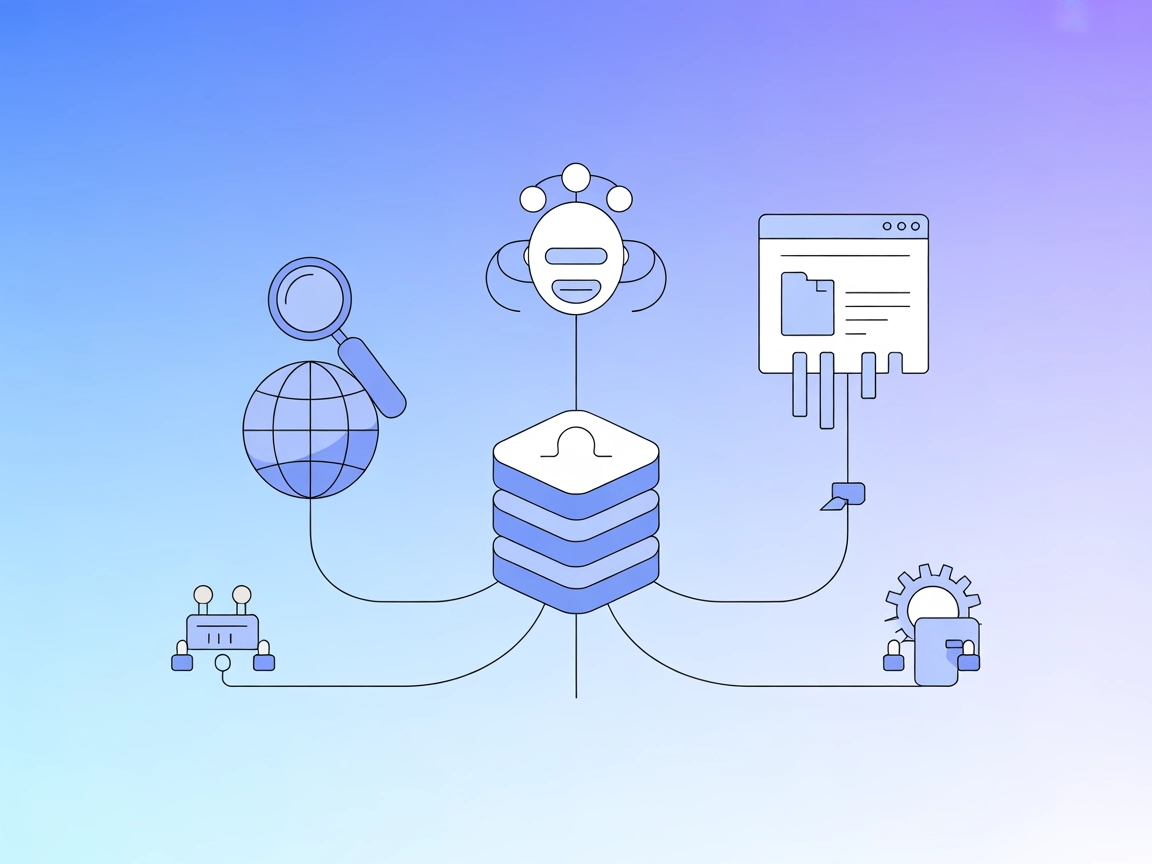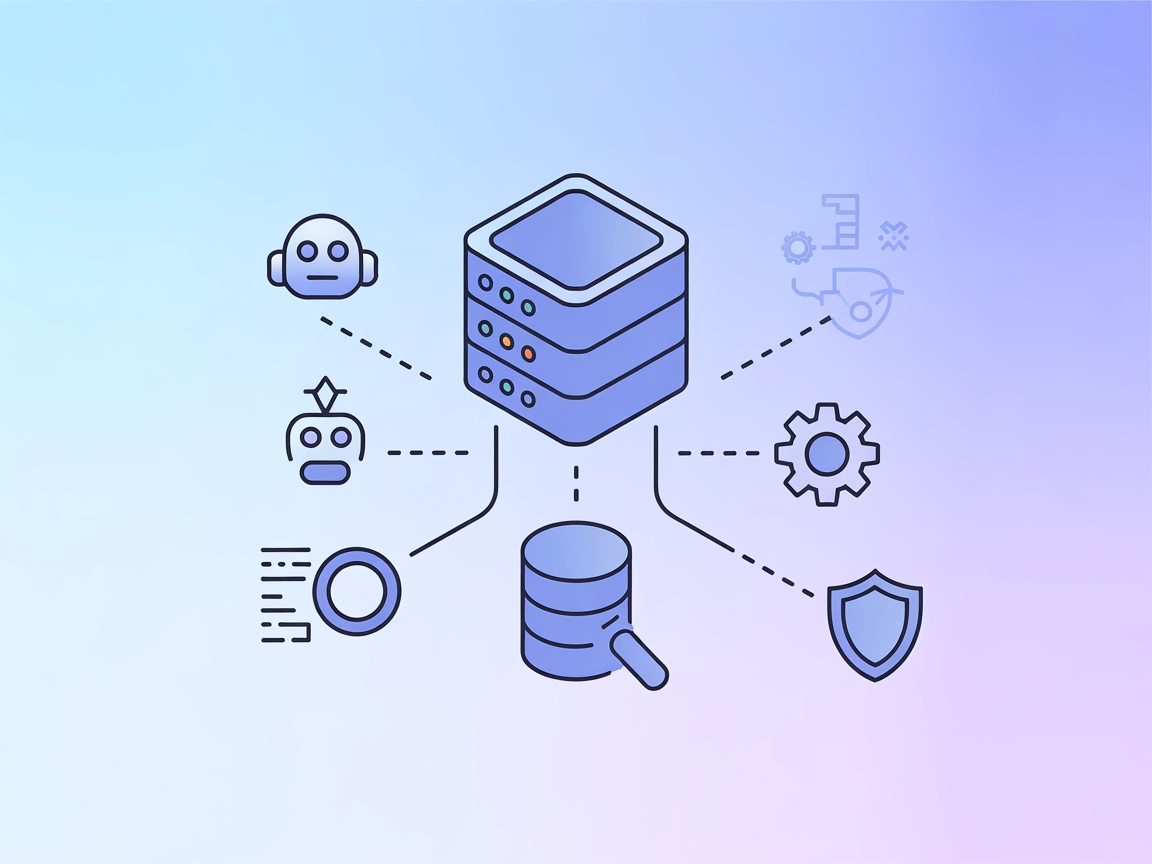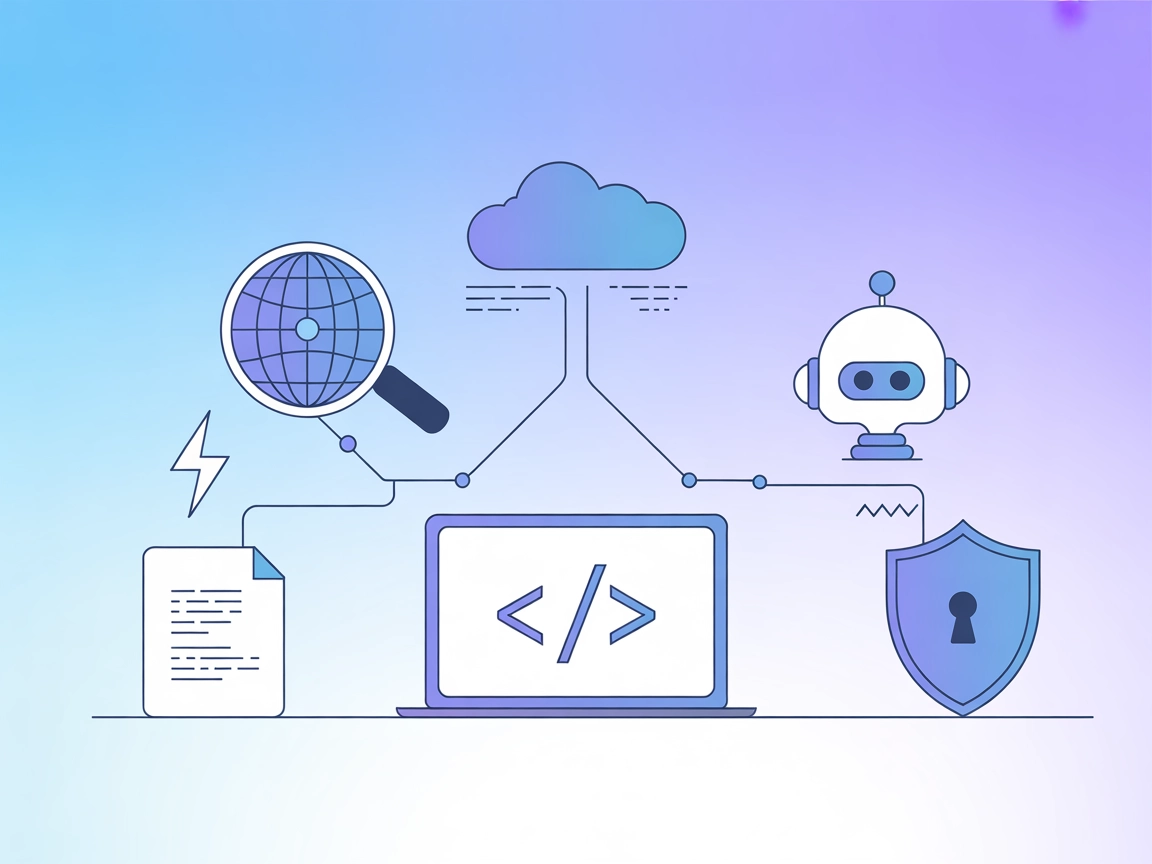
mcp-google-search MCP Server
The mcp-google-search MCP Server bridges AI assistants and the web, enabling real-time search and content extraction using the Google Custom Search API. It empo...

Power up your AI agents with comprehensive Google Search access using the Serper MCP Server—instantly retrieve live results, images, news, maps, reviews, and more for smarter, up-to-date conversational experiences.
FlowHunt provides an additional security layer between your internal systems and AI tools, giving you granular control over which tools are accessible from your MCP servers. MCP servers hosted in our infrastructure can be seamlessly integrated with FlowHunt's chatbot as well as popular AI platforms like ChatGPT, Claude, and various AI editors.
The Serper MCP Server is a Model Context Protocol (MCP) server that provides Google Search capabilities via the Serper API. It acts as a bridge between AI assistants and Google’s search infrastructure, enabling LLMs and agents to retrieve real-time search information directly from Google. Through the Serper MCP Server, AI clients can access a wide range of Google search results, including web, images, videos, news, maps, reviews, shopping, and more. This enhances AI development workflows by allowing assistants to answer queries, gather up-to-date facts, extract structured data, and interact with search-driven resources, making it a powerful tool for research, automation, and workflow augmentation.
No prompt templates are mentioned in the repository or documentation.
No specific MCP resources (readable context objects) are documented or exposed by the Serper MCP Server.
mcpServers object:{
"mcpServers": {
"serper": {
"command": "uvx",
"args": ["serper-mcp-server"],
"env": {
"SERPER_API_KEY": "<Your Serper API key>"
}
}
}
}
uv
on your system.claude_desktop_config.json, add the Serper MCP Server:{
"mcpServers": {
"serper": {
"command": "uvx",
"args": ["serper-mcp-server"],
"env": {
"SERPER_API_KEY": "<Your Serper API key>"
}
}
}
}
uv are installed.{
"mcpServers": {
"serper": {
"command": "uvx",
"args": ["serper-mcp-server"],
"env": {
"SERPER_API_KEY": "<Your Serper API key>"
}
}
}
}
serper-mcp-server via pip or add to requirements.txt:serper-mcp-server
{
"mcpServers": {
"serper": {
"command": "uvx",
"args": ["serper-mcp-server"],
"env": {
"SERPER_API_KEY": "<Your Serper API key>"
}
}
}
}
Securing API Keys
Store sensitive API keys using environment variables in your configuration. Example:
{
"mcpServers": {
"serper": {
"command": "uvx",
"args": ["serper-mcp-server"],
"env": {
"SERPER_API_KEY": "<Your Serper API key>"
}
}
}
}
Using MCP in FlowHunt
To integrate MCP servers into your FlowHunt workflow, start by adding the MCP component to your flow and connecting it to your AI agent:

Click on the MCP component to open the configuration panel. In the system MCP configuration section, insert your MCP server details using this JSON format:
{
"serper": {
"transport": "streamable_http",
"url": "https://yourmcpserver.example/pathtothemcp/url"
}
}
Once configured, the AI agent is now able to use this MCP as a tool with access to all its functions and capabilities. Remember to change “serper” to whatever the actual name of your MCP server is and replace the URL with your own MCP server URL.
| Section | Availability | Details/Notes |
|---|---|---|
| Overview | ✅ | Google Search API for LLMs via Serper |
| List of Prompts | ⛔ | No prompt templates documented |
| List of Resources | ⛔ | No explicit MCP resources documented |
| List of Tools | ✅ | 13 tools: google_search, images, videos, news, reviews, maps, shopping, etc. |
| Securing API Keys | ✅ | Uses env variables in config |
| Sampling Support (less important in evaluation) | ⛔ | No sampling support mentioned |
Serper MCP Server is focused and practical, offering a rich set of Google-powered search tools for AI agents. However, it lacks explicit prompt templates, resource definitions, and sampling/root support. Its documentation is concise but functional. Overall, it’s a solid utility for search augmentation but not a full-featured MCP server.
| Has a LICENSE | ⛔ |
|---|---|
| Has at least one tool | ✅ |
| Number of Forks | 1 |
| Number of Stars | 5 |
Serper MCP Server is a Model Context Protocol (MCP) server that enables AI agents and LLMs to perform real-time Google Search queries—including web, images, news, reviews, shopping, and more—directly through the Serper API.
It offers a suite of Google-powered tools: web search, images, videos, news, shopping, maps, reviews, Google Lens, Scholar search, autocomplete suggestions, and webpage scraping.
Always store your Serper API key in environment variables within your configuration files. Never commit sensitive keys to version control or expose them in public repositories.
Use cases include: answering user queries with live Google results, discovering images or videos, collecting business reviews, conducting academic research, and extracting web content for summarization or automation.
No, the Serper MCP Server does not document prompt templates or expose explicit MCP resources. It focuses on delivering search and media tools.
In the FlowHunt builder, add the MCP component to your flow, then configure the system MCP settings with your Serper MCP Server details. This allows your agent to access all search tools through one integration.
Empower your flows with real-time Google Search results. Enhance your agents with web, image, video, and academic search—all from a single MCP server.

The mcp-google-search MCP Server bridges AI assistants and the web, enabling real-time search and content extraction using the Google Custom Search API. It empo...

The OpenSearch MCP Server enables seamless integration of OpenSearch with FlowHunt and other AI agents, allowing programmatic access to search, analytics, and c...

The Search1API MCP Server integrates real-time web search and crawling capabilities into AI agents via the powerful Search1API, enabling live information retrie...
Cookie Consent
We use cookies to enhance your browsing experience and analyze our traffic. See our privacy policy.